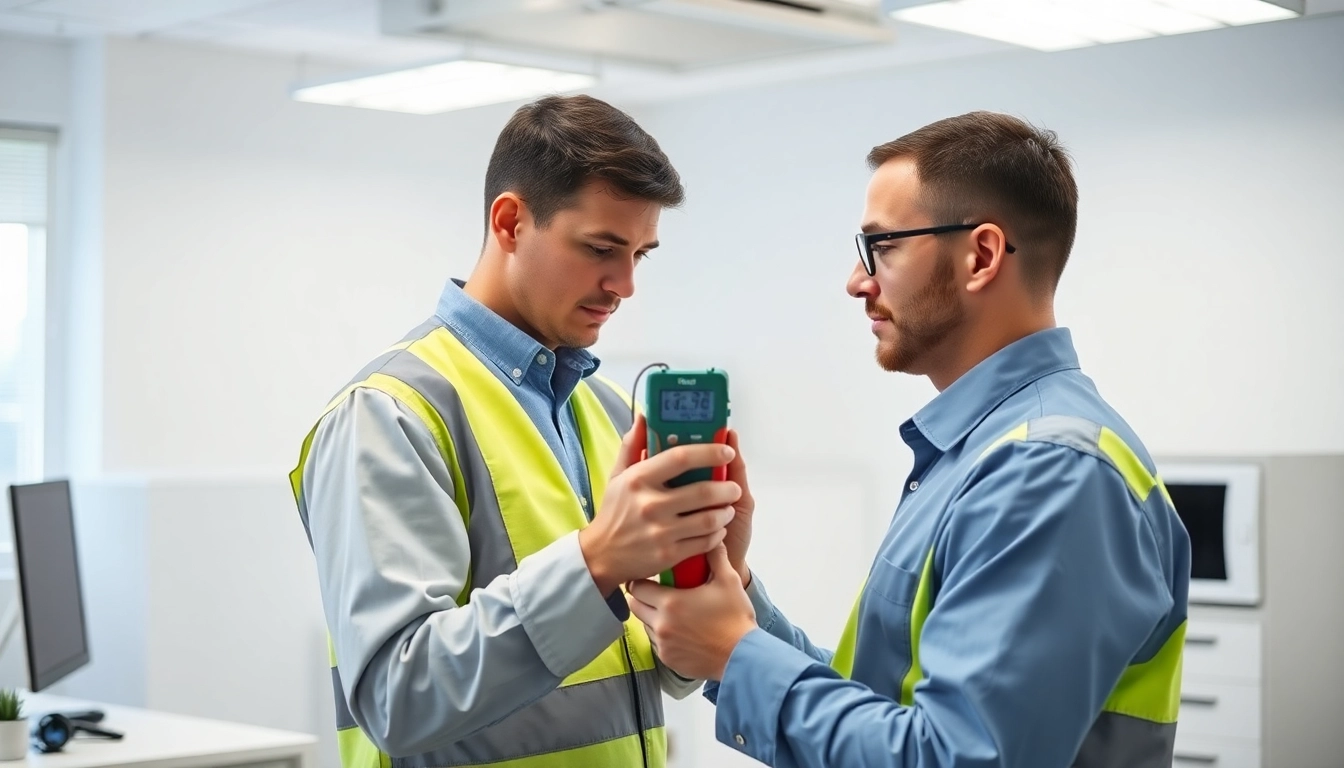Understanding PAT Testing in Cannock
What is PAT Testing?
Portable Appliance Testing (PAT) is a process that ensures electrical appliances are safe to use. This involves a series of assessments to check both the physical integrity of the appliance and its electrical safety. In Cannock, as in other parts of the UK, PAT testing is commonly carried out by trained professionals who use specialized equipment to detect potential faults. The testing covers a wide range of appliances, from personal devices like hairdryers to larger equipment used in commercial settings.
Importance of PAT Testing for Safety
Conducting regular PAT testing is crucial for the safety of employees and the public. Faulty electrical appliances can lead to serious accidents such as electrical shocks, fires, and even fatalities. This is particularly important in commercial settings where numerous appliances are used simultaneously. Regular assessments help organizations in Cannock not just comply with safety regulations but also demonstrate a commitment to workplace safety and employee welfare.
Legal Requirements for PAT Testing in Cannock
In the UK, several laws govern electrical safety, including the Health and Safety at Work Act 1974 and the Electricity at Work Regulations 1989. These regulations stipulate that employers are responsible for ensuring that all electrical equipment is maintained in a safe condition. While the law does not specifically require PAT testing, it is a widely accepted method of demonstrating compliance with these regulations. In Cannock, businesses must remain vigilant and ensure they meet legal expectations through regular testing and maintenance of all electrical devices.
Choosing the Right PAT Testing Service in Cannock
Key Factors to Consider When Hiring
Selecting the appropriate PAT testing service can significantly impact your business’s safety practices. Here are some key considerations to keep in mind:
- Qualifications and Experience: Ensure the testing company employs certified professionals with experience in PAT testing.
- Insurance and Compliance: The service provider should have adequate liability insurance and adhere to local regulatory requirements.
- Type of Equipment Used: Ask about the testing equipment and procedures they use. Advanced testing equipment generally provides more accurate results.
- Coverage Area: Confirm that they serve Cannock and surrounding areas for convenience and reliability.
Evaluating Customer Reviews and Testimonials
Customer feedback can provide valuable insights into a PAT testing service’s reliability and quality. Look for testimonials on their website, Google reviews, and industry-specific forums. Pay attention to comments regarding punctuality, professionalism, and the clarity of reports provided. A company with numerous positive reviews tailored specifically to Cannock and its unique needs should be prioritized.
Comparing Service Packages and Pricing
Different PAT testing providers may have varying service packages and pricing structures. Some may charge per item tested, while others might offer bulk rates. When comparing services, consider the following:
- Include vs. Exclude: Understand what is included in the service package. Some companies may offer comprehensive packages that include detailed reports and follow-up services.
- Hidden Charges: Ensure there are no hidden fees, particularly for services like travel or service call charges.
- Flexibility: Some firms may offer tailored solutions based on your specific business needs, which can provide great value.
The PAT Testing Process Explained
Initial Inspection and Risk Assessment
The first stage of PAT testing involves a thorough visual inspection of the appliance. This inspection looks for any visible signs of damage, such as frayed cords or bent prongs. Based on this assessment, the tester will categorize the appliance as low risk, medium risk, or high risk. Appliances deemed to have a higher risk may require more frequent testing and careful monitoring. This stage is critical because electrical safety isn’t solely about testing; proper equipment maintenance and handling are equally essential.
Testing Procedures and Equipment Used
Following the initial inspection, the actual testing is conducted using specialized equipment designed to check several parameters, including:
- Earth Continuity: Ensures that current has an effective path to earth.
- Insulation Resistance: Tests the quality of the insulation around an electrical conductor.
- Functional Testing: Checks that the appliance operates correctly and performs its intended function without any issues.
Different types of appliances may undergo varying testing procedures based on their complexity and usage. Experienced PAT testers in Cannock know how to adapt their assessments based on the specific appliance types.
Understanding Test Results and Documentation
Once testing is completed, the results are compiled into a report detailing the status of each appliance. Test reports should clearly indicate:
- The status of each item tested (pass/fail)
- The date of the test
- Any recommended actions or follow-ups
Keeping these records is essential for compliance and for tracking the maintenance history of your equipment. Regular review of test results helps businesses in Cannock make informed decisions regarding equipment maintenance and replacement.
Pricing and Cost Factors for PAT Testing in Cannock
Average Costs Per Item Tested
The cost of PAT testing can vary widely based on the provider, the complexity of the equipment, and the number of appliances being tested. On average, businesses can expect to pay between £1 and £2 per item. However, many companies offer discounts for bulk testing, so it’s worthwhile to gather quotes from multiple providers in Cannock for comparison purposes.
Discounts for Bulk Testing Services
If you have a large number of appliances to test, many PAT testing companies in Cannock offer discounted rates for bulk tests. This is often an attractive option for businesses, as it can significantly reduce costs. Ensure to inquire about potential savings when requesting quotes and find out what constitutes bulk testing for different companies.
Hidden Fees and Policies to Watch Out For
When choosing a PAT testing provider, it’s critical to ask about any potential hidden fees. Some companies may charge for additional services such as travel, emergency call-outs, or follow-up inspections. Read the fine print carefully to avoid unexpected costs later on. Understanding the full pricing structure can help you avoid providers who engage in less transparent billing practices.
Maintaining Compliance and Safety with Regular PAT Testing
Creating a PAT Testing Schedule for Your Business
Implementing a regular PAT testing schedule is crucial for maintaining compliance and equipment safety. The frequency of testing can depend on the type of appliance and the environment in which it operates. As a rule of thumb:
- Low-Risk Environments: Domestic appliances may only need testing every 2 years.
- Medium-Risk Environments: Offices may need annual testing.
- High-Risk Environments: In industrial or commercial setups, quarterly testing may be necessary.
In Cannock, many businesses benefit from working with a PAT testing service that provides reminders and helps schedule testing in advance to ensure they’re compliant with regulations.
Consequences of Non-Compliance
Failing to conduct regular PAT testing can have grave consequences. In the event of an accident caused by faulty equipment, a business may face legal actions and financial liabilities. Additionally, regulatory bodies can impose fines and sanctions for non-compliance, resulting in severe damage to your company’s reputation. It’s essential for businesses in Cannock to understand that investing in regular testing is an investment in operational safety.
Updates and Changes in PAT Testing Regulations
The landscape of electrical safety regulations is constantly evolving, with changes aimed at improving public safety. While PAT testing remains an essential method for ensuring electrical safety, businesses must stay informed about the latest updates in regulations such as the use of new testing technologies or changes in compliance standards. Joining local trade associations or attending industry seminars can be beneficial for staying updated.



